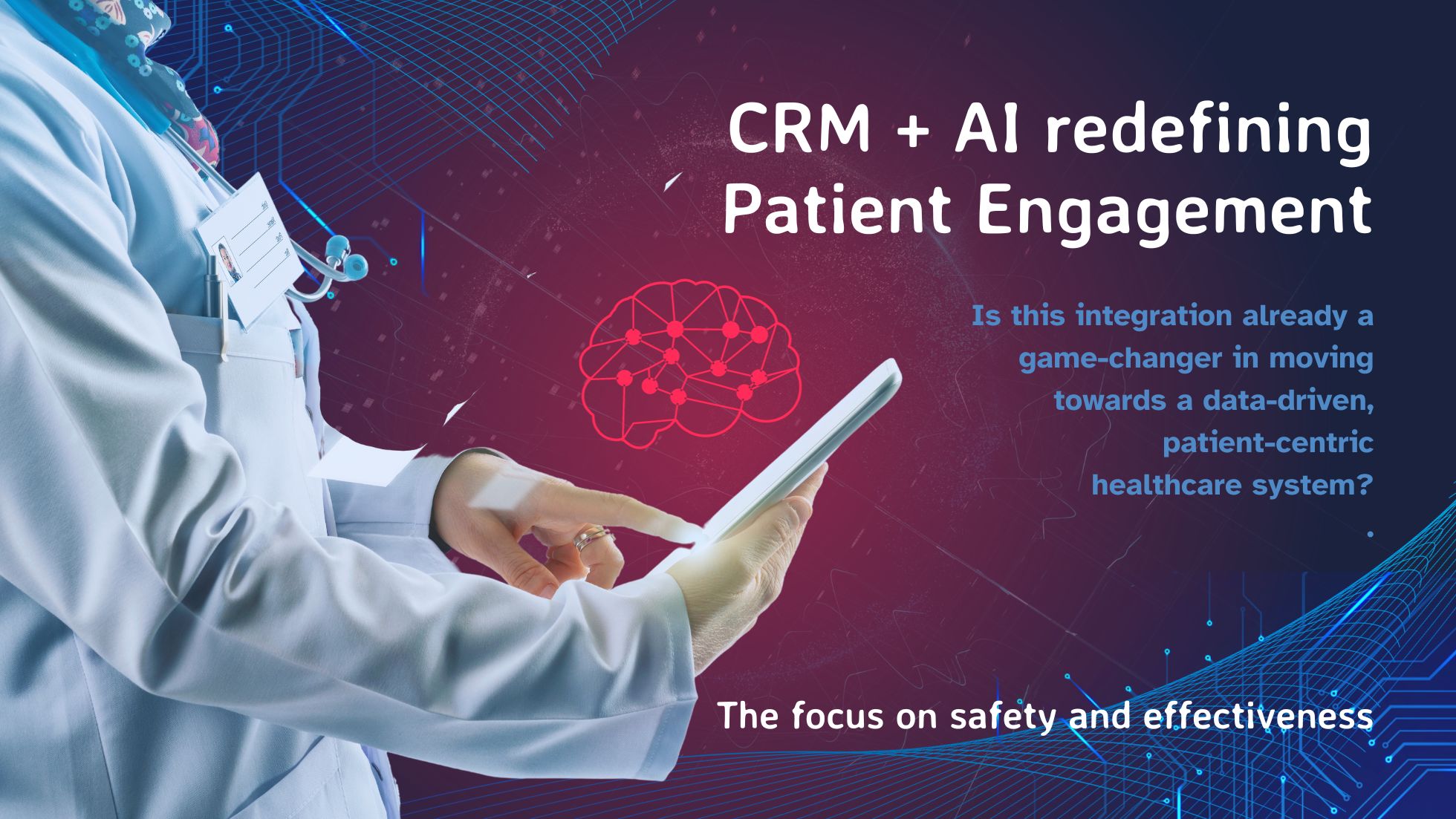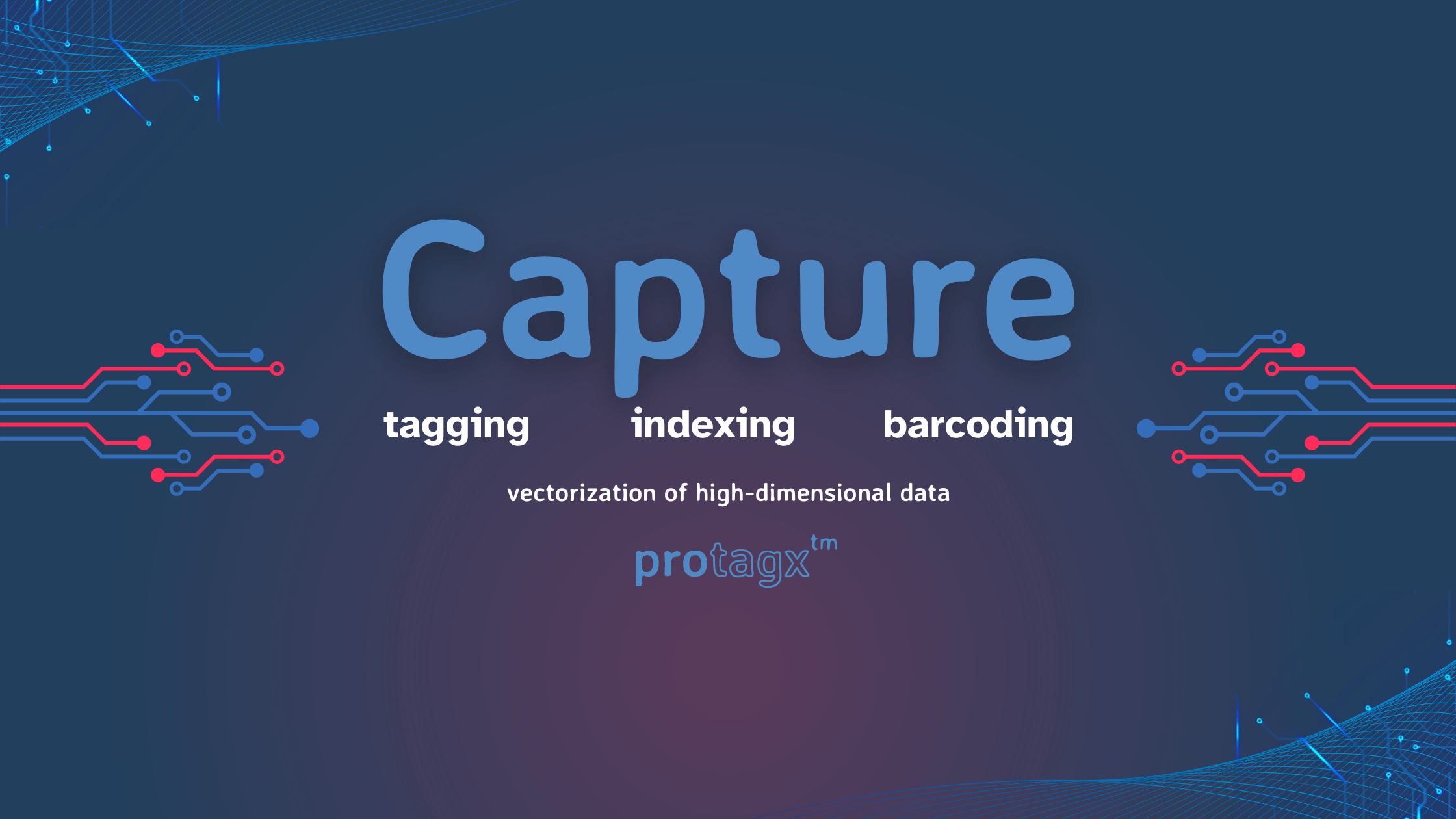updated
In the rapidly evolving landscape of healthcare, patient engagement has emerged as a cornerstone for effective care delivery. With the advent of sophisticated customer relationship management (CRM) platforms and groundbreaking data standards from initiatives like the IT Future of Cancer (ITFoC), we are witnessing a transformative era in healthcare management.
Redefining Patient Engagement with CRM
 Usually, CRM platforms have been the go-to for industries like retail and finance, focusing on customer service and building relationships. However, in healthcare, CRM systems are revolutionizing patient engagement by offering care that is more personalized, efficient, and responsive. These platforms provide a complete picture of the patient journey, from the first contact to ongoing care and follow-up, which is crucial in today's patient-centered care models.
Usually, CRM platforms have been the go-to for industries like retail and finance, focusing on customer service and building relationships. However, in healthcare, CRM systems are revolutionizing patient engagement by offering care that is more personalized, efficient, and responsive. These platforms provide a complete picture of the patient journey, from the first contact to ongoing care and follow-up, which is crucial in today's patient-centered care models.
The incorporation of advanced AI capabilities in CRM systems has further enhanced their potential. AI-driven insights enable healthcare providers to predict patient needs, personalize communication, and streamline care delivery processes. This predictive capability is vital for early intervention, improving patient outcomes, and enhancing the overall quality of care. In the domain of patient engagement, predictive and generative AI are poised to introduce significant advancements.
Generative AI, in particular, is expected to bolster real-time patient monitoring and facilitate data analysis that can yield personalized insights, encouraging healthier behaviors and enabling timely interventions to preempt the exacerbation of medical conditions. Such technologies can enhance patient engagement by optimizing costs and fostering active connections between clinicians and patients, without increasing the clinicians' workload. The generation of synthetic data through generative AI models like Generative Adversarial Networks (GANs) and Variational Autoencoders (VAEs) is seen as a promising avenue to balance the need for access to valuable data with the protection of patient privacy.
This innovative approach involves the creation of realistic and anonymized patient data that can be used for research and training purposes. With the support of generative AI, predictive analytics excels at analyzing vast datasets to uncover patterns that may not be immediately apparent. By analyzing patient data in real-time, these algorithms can quickly identify potential health risks, empowering healthcare providers to take proactive measures to mitigate them. This real-time data analysis sets generative AI apart from traditional AI, which typically focuses on pattern detection and decision-making. Generative AI, on the other hand, has the ability to generate new content, responses, designs, and synthetic data, expanding its application scope in the healthcare field.Setting New Standards in Personalized Medicine
 Recent developments in setting new standards in Personalized Medicine have been driven by the integration of sophisticated customer relationship management (CRM) platforms and groundbreaking data standards adopted by software producers of such platforms like Veeva or Saleforce. These advancements have revolutionized patient engagement and care delivery in healthcare. CRM systems, traditionally used in industries like retail and finance, are now redefining patient engagement by offering personalized, efficient, and responsive care. With a comprehensive view of the patient journey, healthcare providers can predict patient needs, personalize communication, and streamline care delivery processes using AI-driven insights.
Recent developments in setting new standards in Personalized Medicine have been driven by the integration of sophisticated customer relationship management (CRM) platforms and groundbreaking data standards adopted by software producers of such platforms like Veeva or Saleforce. These advancements have revolutionized patient engagement and care delivery in healthcare. CRM systems, traditionally used in industries like retail and finance, are now redefining patient engagement by offering personalized, efficient, and responsive care. With a comprehensive view of the patient journey, healthcare providers can predict patient needs, personalize communication, and streamline care delivery processes using AI-driven insights.
In addition, authorities and consortia started to bring frameworks for assessing AI technologies in healthcare, ensuring safe and effective application based on real-world data; As of October 19, 2023, the FDA has revised its list of these devices, incorporating 171 new entries. By leveraging AI to predict treatment responses, healthcare providers can engage patients more effectively, facilitate informed decision-making, and enhance trust and satisfaction.
The integration of CRM platforms with common data standards and AI represents a significant stride towards a more data-driven, patient-centric healthcare system. With the future promising more personalized and effective patient care, the ultimate goal is to ensure informed, seamless, and effective journeys through the healthcare system, leading to better health outcomes and an enhanced patient experience.
The IT Future of Cancer (ITFoC; https://itfoc.eu/ ) is playing a significant role in Europe today, particularly in the realm of healthcare management. With the introduction of advanced customer relationship management (CRM) platforms and the implementation of groundbreaking data standards from initiatives like ITFoC, the healthcare industry is undergoing a transformative era. CRM systems, traditionally used in industries such as retail and finance, are now redefining patient engagement by offering personalized, efficient, and responsive care (1).
AI Integration put to work in Oncology
The recent recommendation from ITFoC is the establishment of a framework for assessing AI technologies in healthcare, particularly based on real-world data. This framework outlines a meticulous seven-step process, crucial for ensuring the safe and effective application of AI in clinical settings:
- Intended Use of AI: Clearly defining the purpose and application of the AI system.
- Target Population: Identifying the specific patient group for which the AI is intended.
- Timing for AI Evaluation: Determining the appropriate stage for evaluating the AI system.
- Datasets Selected for Evaluation: Choosing relevant datasets that will provide meaningful insights during evaluation.
- Procedures for Data Safety: Implementing strict measures to ensure data integrity and security.
- Metrics for Performance Measurement: Establishing quantifiable metrics to assess AI performance accurately.
- Procedures for AI Explainability: Ensuring the AI system’s decisions are transparent and understandable.
This framework is critical for accelerating AI integration into clinical practice, especially in oncology, where it can significantly enhance treatment prediction and personalization. The ITFoC consortium applied this framework in a community-wide competition, focusing on predicting treatment responses in Triple Negative Breast Cancer (TNBC), showcasing its practical implementation and potential in advancing AI-driven precision medicine.
The Kryptonite of the Patient-to-Provider relationship
 By leveraging AI to predict how patients will respond to treatments, healthcare providers can engage patients more effectively and personalize their care. This predictive insight allows for:
By leveraging AI to predict how patients will respond to treatments, healthcare providers can engage patients more effectively and personalize their care. This predictive insight allows for:
-
Informed Decision Making: Patients can make more informed decisions about their treatment options when they understand the likely outcomes.
-
Tailored Communication: Providers can tailor their communication based on predicted responses, addressing specific concerns or expectations of the patient.
-
Enhanced Trust and Satisfaction: Accurate predictions can build trust in the healthcare system, enhancing patient satisfaction and engagement.
Overall, predicting treatment responses enhances the patient-provider relationship, making healthcare interactions more meaningful, personalized, and effective.
A Future Defined by Integration and Innovation
The convergence of CRM platforms with emerging data standards from ITFoC is like a match made in heaven for patient engagement. This integration is a game-changer in moving towards a data-driven, patient-centric healthcare system. As we dive deeper into the power of AI and standardization in healthcare, the future looks incredibly bright for delivering personalized, effective, and efficient patient care.
The ultimate goal is clear – leveraging technology to ensure that each patient's journey through the healthcare system is as informed, seamless, and effective as possible, leading to better health outcomes and an enhanced patient experience.
(1) Tsopra, R. et al. A framework for validating AI in precision medicine: considerations from the European ITFoC consortium. BMC Medical Informatics and Decision Making vol. 21 https://doi.org/10.1186/s12911-021-01634-3 (2021).




